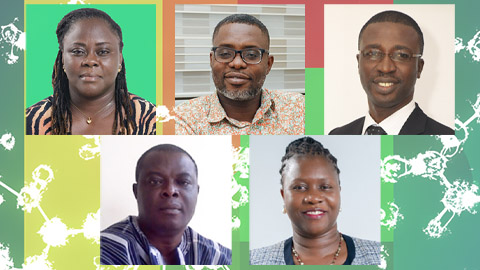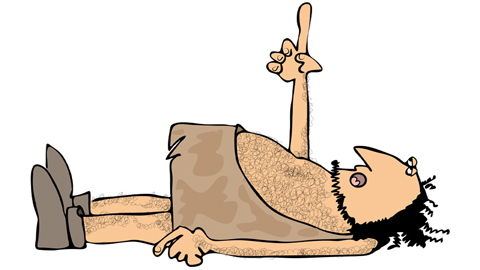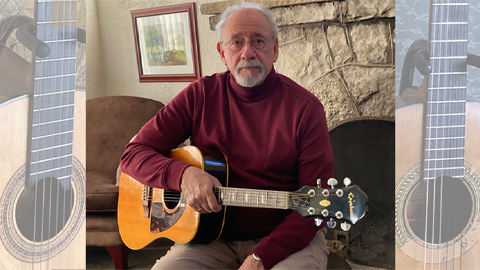Mentoring the next generation
My lab might be closing soon because of insufficient research productivity. Is it really because I supervised too many undergraduate students? And if so, should I regret it?

I’ve been a group leader for seven years. I’ve been 100% self-funded the whole time, and in that period, nobody has been in my group longer than about nine months. I’m paid by what’s known as a “golden handcuffs” grant; it covers my salary, but I’m not allowed to apply for other sources of funding. When I was awarded that grant three years ago, my request for an accompanying Ph.D. stipend was rejected.
So I adapted. I started doing more teaching and realized I loved it. No, not quite that. It was hard, and it was a hell of a steep learning curve (especially the practical classes), but it felt meaningful. I felt that I was giving something back.
As I did more teaching, slowly getting the hang of it in an unfamiliar academic environment, I began to receive a stream of enquiries for undergraduate and master’s positions in the group. I had no postdocs or Ph.D.s, so I supervised them all myself.
More than that, I quickly realized that’s how I wanted it. All but one year of my postgraduate and postdoctoral time was spent in research institutes, and I was very lucky to have done my Ph.D. at the Medical Research Council Laboratory of Molecular Biology in Cambridge, England, where group leaders were encouraged and to some extent expected to still be active at the bench. Being directly supervised by my Ph.D. mentor — who was actually very close to retirement at the time — had made a big impression on me. I wanted to replicate that training experience.
The only way I could be sure that every student coming through my group acquired the information I thought was important, not only learned how to use techniques but also understood them, and adhered to the professional standards I applied to myself was to look after the students personally. With this approach, I found that I could supervise a maximum of three students at a time.
Over these past seven years I’ve personally supervised seven master’s students, seven undergraduates and 19 five-week rotation projects, over 30 students in all. I supervised more than 20 of those students in the three years since I started teaching more.
And I’ve gotten really, really good at supervising. Right now, we are putting the finishing touches to a research paper exploring the interplay between the cytoskeleton and endocytic machinery in the eukaryotic parasite Trypanosoma brucei that has literally two soccer teams’ worth of authors. That’s because it’s been painstakingly assembled by all of those undergraduate students working in sequence.
But it hasn’t come quickly enough. I found out recently that my grant renewal application has been unsuccessful, so the entire future of the group is uncertain. One reviewer recommended funding with high priority and the addition of a Ph.D. stipend, while the other placed it in the bottom 50% of reviewed applications and considered it not internationally competitive; both agreed that my recent publication record was weak. As ever, there are reasons but no excuses.
Such setbacks invite a degree of reflection. I’ve asked around, and one common thread has emerged: My mistake, so it goes, is that I have not spent enough time at the bench myself. By choosing to supervise undergraduates instead of cloistering myself, I have lost time and productivity.
There’s a grain of truth to this. My productivity is roughly what it would have been if I’d worked alone at the bench full time. But when things are going well and the students are bedded in, I have six hands, and we are more productive than if I were working alone with the two hands at the ends of my arms.
Plus, as a group leader it’s not possible to work full time at the bench. There’s not just the teaching; there are all the myriad other bits and bobs that go with being a contributing, engaged and helpful member of a department. Would that department view me as an asset if I had refused to do those things? I doubt it. But in seeking to be a good colleague and a good mentor, I may have sabotaged my research career.
Besides these questions of productivity, though, supervising undergraduates in the lab is really, really great fun. It’s fun communicating the basics, reassuring to realize that I still understand them (there’s a selfish case for teaching and mentoring, after all), and an entertaining challenge trying to enthuse students about a topic.
And it’s important too. The coronavirus pandemic has shown how integral science is to contemporary society and how important an informed and supportive public is. We need people going out into the wider world knowing how science works, believing it’s important and trusting its practitioners.
I’ve often heard group leaders in postdoc-rich environments complaining that we train too many Ph.D.s. They’re wrong. If there’s a glut of Ph.D.s on the academic job market, then it means we’re telling them that academia is the default route and we’re not highlighting other career options clearly enough.
I’m also hearing more and more (often from colleagues in research-intensive environments) that the quality of incoming Ph.D.s isn’t high enough. Research techniques are getting more sophisticated, so more and more expert training is needed at an earlier stage. We need to involve undergraduates as early as possible. We need to expose them to frontline research early on so that they gain relevant experience and inculcate the right standards.
There is value to making sure that undergraduates get high-quality training not just for research but for society at large. I could have been at a bench on my own these last few years, but I’m happier that I’ve sent out 30 students who know how science feels and how good science is done.
Yes, I’ve been dumb. I’m guilty of doing the job the way I think it should be done instead of looking at how I was supposed to be doing it. It took time, apparently too much time, to learn how to do all this efficiently, and I made a lot of the usual new group leader mistakes along the way. I don’t think the choice between doing it alone or doing it with undergraduates was the problem. I think the main problem was not having even a single Ph.D. student this whole time.
I don’t know if I could have done better with the hand I was given, and I’m happy with the way I played it. I had a hell of a lot more fun interacting with all those young scientists than I would have done working alone every day of the week.
If this is the end, then it doesn’t feel like such a bad hill for my academic career to die on. I believe in the potential of young scientists. I believe they deserve the best possible introduction to bench science. I believe they benefit enormously from close interaction with experienced scientists, and I believe this is something I can do to make a difference.
I’m not going to change my approach. Wish me luck.
This essay is adapted from Brooke Morriswood’s blog, Total Internal Reflection.
Enjoy reading ASBMB Today?
Become a member to receive the print edition monthly and the digital edition weekly.
Learn moreGet the latest from ASBMB Today
Enter your email address, and we’ll send you a weekly email with recent articles, interviews and more.
Latest in Opinions
Opinions highlights or most popular articles

Getting to know scientists half a world away
In a program at Wellesley College, students interview and write about researchers at a university in Ghana.

Let’s make ASBMB awardees look more like BMB scientists
Think about nominating someone outside your immediate network.

A paleolithic peer review
You might think review panels have only been around for the last century or so. You would be mistaken.

Early COVID-19 research is riddled with poor methods and low-quality results
The pandemic worsened, but didn’t create, this problem for science.

So, you went to a conference. Now what?
Once you return to normal lab life, how can you make use of everything you learned?

My guitar companion
A scientist takes a musical journey through time and around the world.

